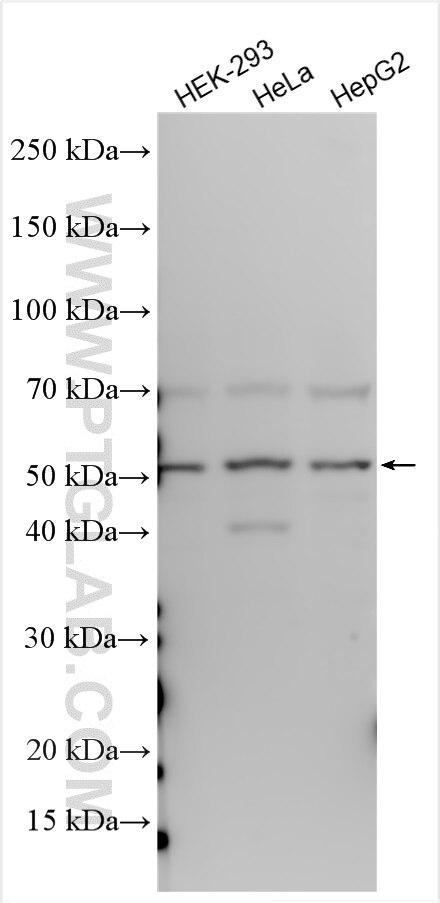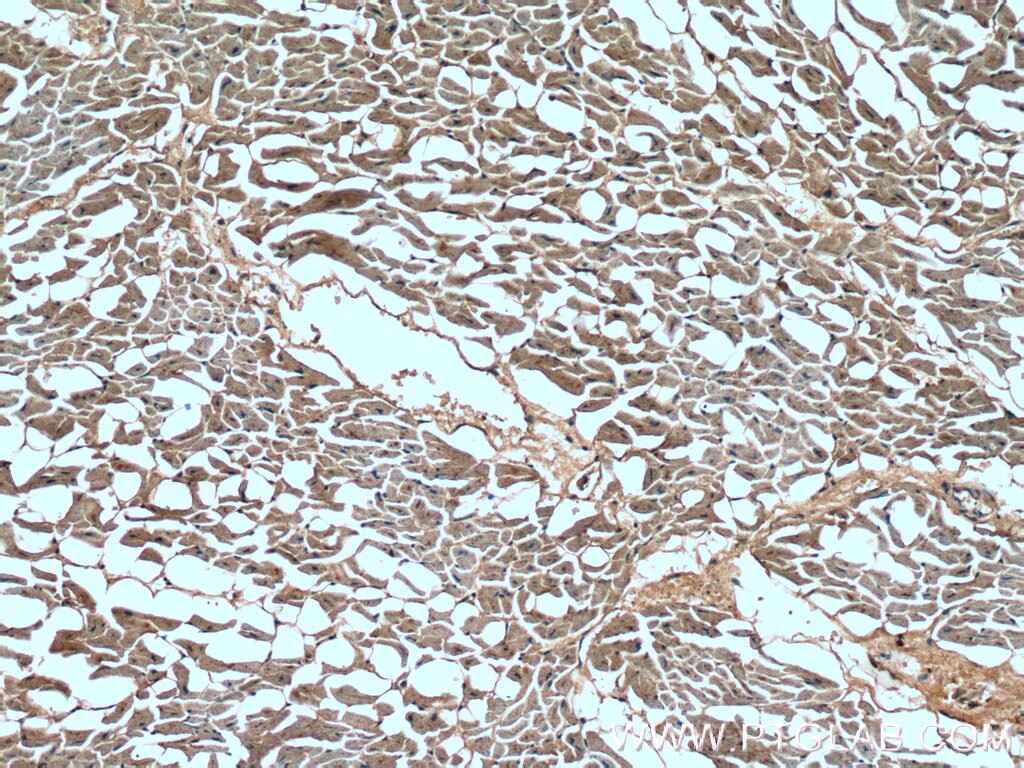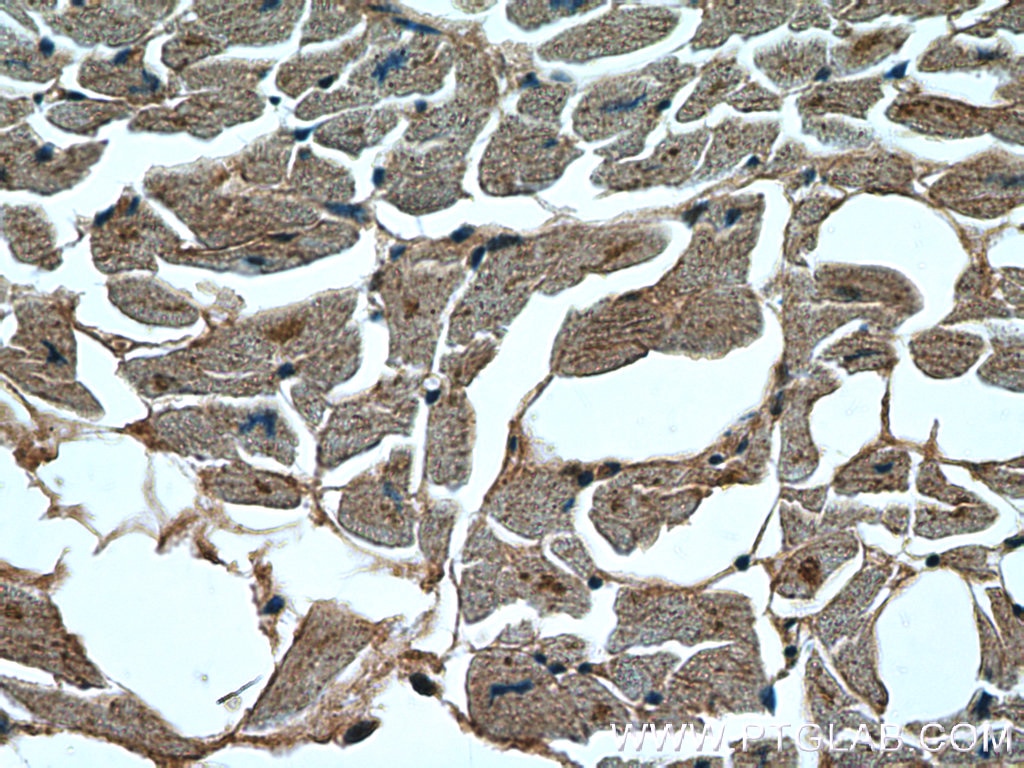Validation Data Gallery
Tested Applications
| Positive WB detected in | HEK-293 cells |
| Positive IHC detected in | human heart tissue Note: suggested antigen retrieval with TE buffer pH 9.0; (*) Alternatively, antigen retrieval may be performed with citrate buffer pH 6.0 |
Recommended dilution
| Application | Dilution |
|---|---|
| Western Blot (WB) | WB : 1:500-1:2000 |
| Immunohistochemistry (IHC) | IHC : 1:50-1:500 |
| It is recommended that this reagent should be titrated in each testing system to obtain optimal results. | |
| Sample-dependent, Check data in validation data gallery. | |
Product Information
12697-1-AP targets STK38L in WB, IHC, ELISA applications and shows reactivity with human samples.
| Tested Reactivity | human |
| Host / Isotype | Rabbit / IgG |
| Class | Polyclonal |
| Type | Antibody |
| Immunogen | STK38L fusion protein Ag3413 相同性解析による交差性が予測される生物種 |
| Full Name | serine/threonine kinase 38 like |
| Calculated molecular weight | 464 aa, 54 kDa |
| Observed molecular weight | 54 kDa |
| GenBank accession number | BC028603 |
| Gene Symbol | STK38L |
| Gene ID (NCBI) | 23012 |
| RRID | AB_2240003 |
| Conjugate | Unconjugated |
| Form | Liquid |
| Purification Method | Antigen affinity purification |
| UNIPROT ID | Q9Y2H1 |
| Storage Buffer | PBS with 0.02% sodium azide and 50% glycerol , pH 7.3 |
| Storage Conditions | Store at -20°C. Stable for one year after shipment. Aliquoting is unnecessary for -20oC storage. |
Background Information
STK38L, also named as KIAA0965 and NDR2, belongs to the protein kinase superfamily and AGC Ser/Thr protein kinase family. It is involved in the regulation of structural processes in differentiating and mature neuronal cells. This antibody is specific to STK38L.
Protocols
| Product Specific Protocols | |
|---|---|
| WB protocol for STK38L antibody 12697-1-AP | Download protocol |
| IHC protocol for STK38L antibody 12697-1-AP | Download protocol |
| Standard Protocols | |
|---|---|
| Click here to view our Standard Protocols |


